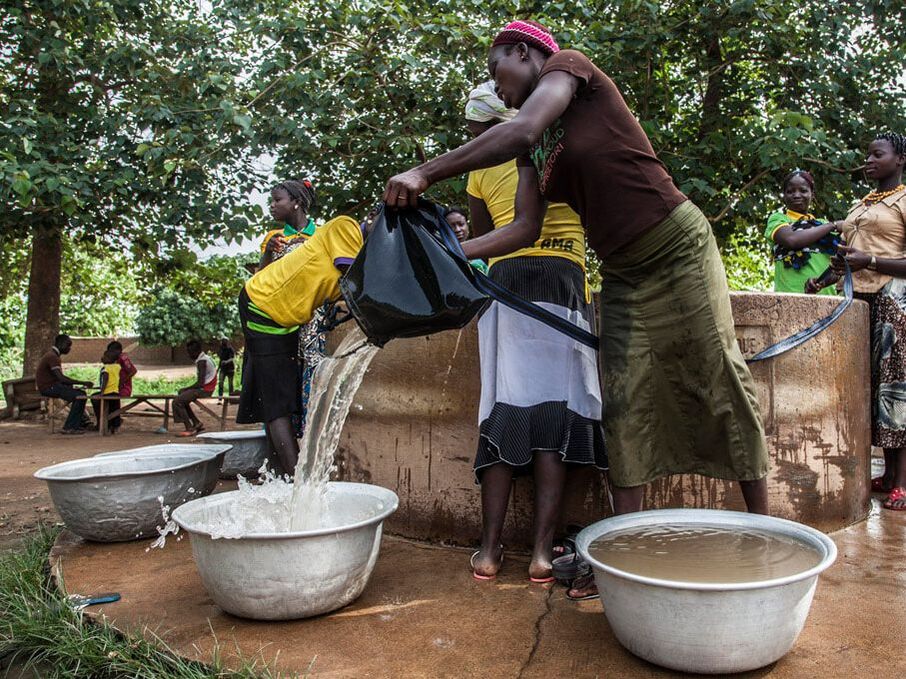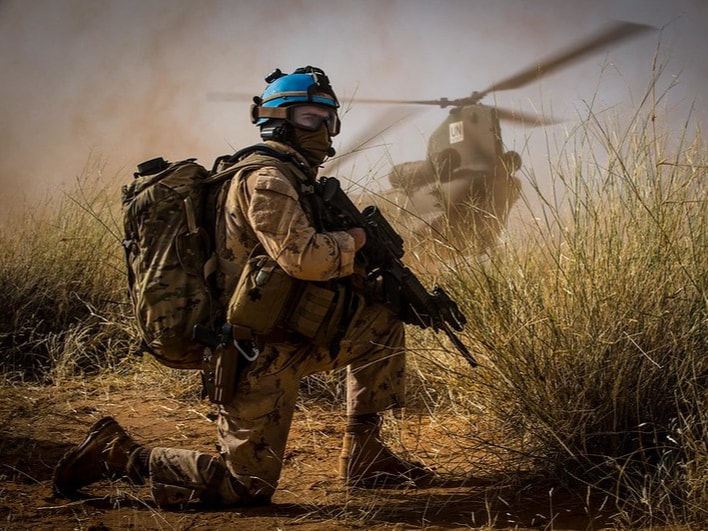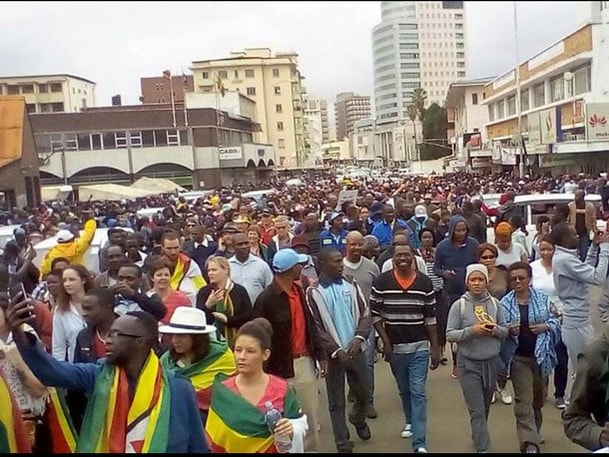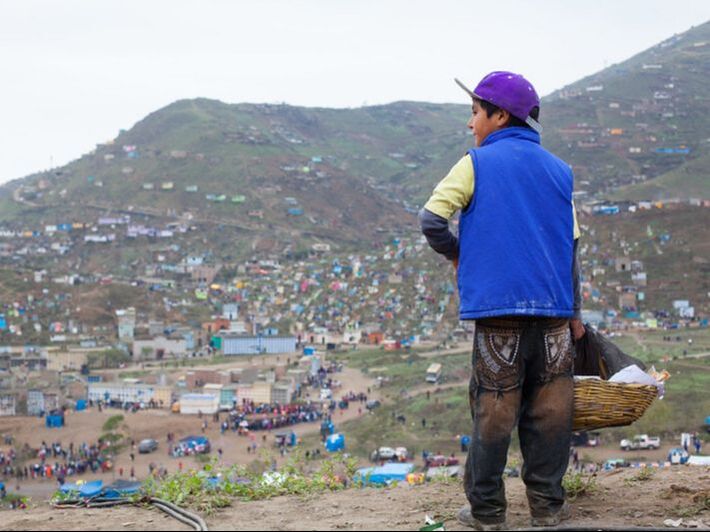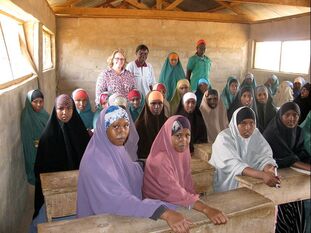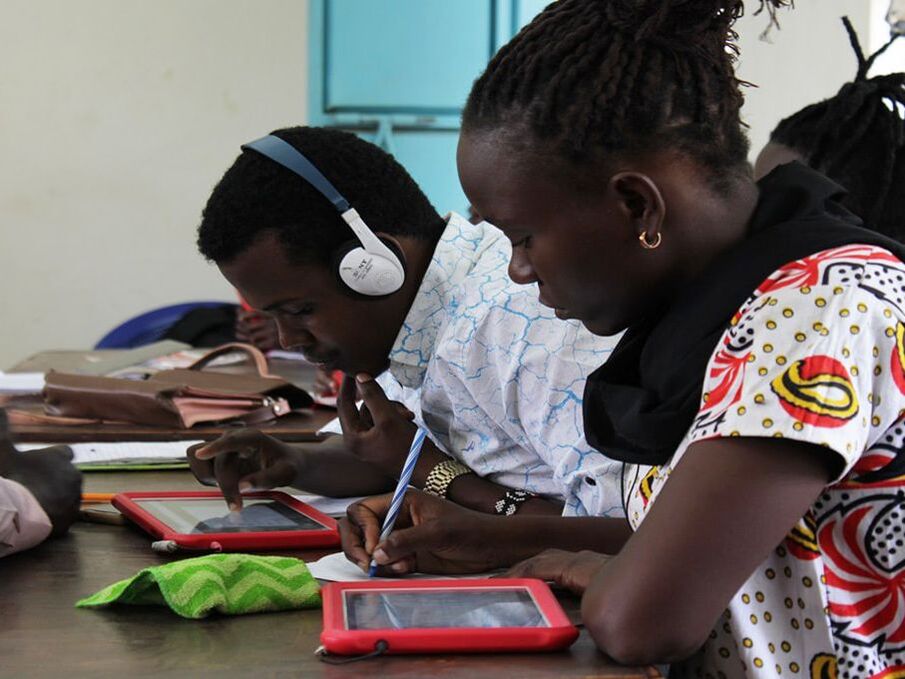- Home
- Technology
- Management
- Health Care
- Earth Sciences
- Particle Physics
- Engineering
- Stories of Turtle Island
- Startup Companies
- The Lost Ships of the Franklin Expedition
- Wildlife
- Archaeology
- Palaeontology
- Architecture, Land Use and Planning
- Politics and International Development
- COVID-19
- University Life
Lack of clean water is an impediment to women's rightsEarth’s surface is mostly water, but only a small fraction of that water is fresh, and most of that fraction is locked away in alpine glaciers, polar ice caps and remote lakes. Less than .007 per cent of Earth’s water is both fresh and readily available.
But even then, it isn’t always safe or easy to actually obtain it. Some available water is polluted or contaminated with disease-causing pathogens. Other sources are far away and require time-consuming trips to obtain. Women are disproportionately impacted. They are more likely to be responsible for obtaining water, and the time spent fetching water is often time that girls would otherwise spend studying or in school. Women are also more likely to be responsible for household tasks like cooking, cleaning or laundry that can expose them to contaminated water and make them sick. Click here for full text |
Canadian politicians lack security clearance to review secret opsUnder cover of darkness, in a remote valley in Afghanistan’s Kandahar province, Canada’s elite special operations soldiers prepared for a raid on a sleeping village. Their mission: to apprehend three men who have been identified as Taliban fighters.
How were they identified? By an informant? A dragnet of cell phone metadata acquired through an ally? By their choice to sport a specific model of Casio watch preferred by suicide bombers? The scenario is hypothetical, but Canadian politicians likely wouldn’t know the answers to that question, even if it were real. Operational secrecy is key to mission success, but in Canada, even the Parliamentarians tasked with overseeing Canada’s armed forces often lack crucial details about military operations and procurement. Click here for full text |
Will new leaders bring real change to Africa?When tanks rolled through Harare in November 2017, Zimbabwe’s generals insisted it wasn’t a coup. But it sure looked like one. After 37 years in power, Robert Mugabe – once a revolutionary who liberated Zimbabwe from white minority rule – was ousted.
Then in February, South African President Jacob Zuma was forced from office. Did it herald a transformative moment in southern African politics? Maybe. With change, there is optimism, but it isn’t always warranted. In Africa, the removal of one dictator often hasn’t meant the end of tyranny, but its reiteration in another’s name. Click here for full text |
Improving food security in Peru
|
Solar lamp program helps girls in refugee camps studyA lone silhouette materializes on a dusty horizon, the weight of a shattered life on his back.
Then a second. And a third . . . They’re striding desperately – inexorably – toward the Dadaab refugee camp, in northeastern Kenya. Among Earth’s most hopeless places, for decades it has offered at least some respite from war, famine and strife bedeviling east Africa. Click here for full text |
Refugee-led initiatives helped stop misinformation during pandemic
COVID-19 closed planet Earth, bringing an era of unprecedented international mobility to a sudden halt. Borders were shut, fleets of aircraft were parked, and entire cities stood still. Everyone was impacted, some more acutely than others.
“International humanitarian organizations are now faced with limited mobility. They can’t reach refugee populations because of shelter-in-place orders,” says James Milner. Click here for full text |
